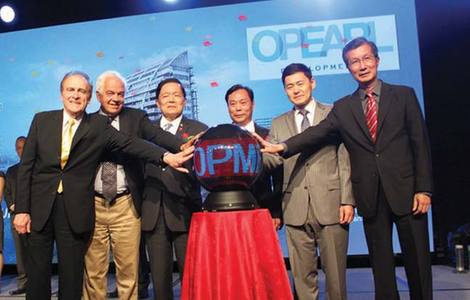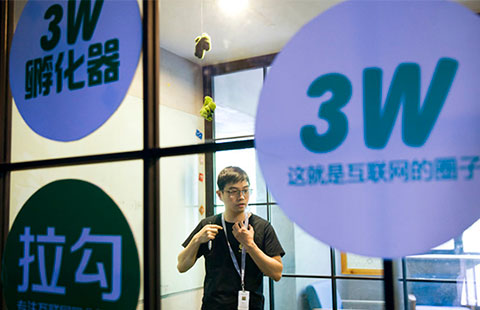In US real estate market, Chinese should take one step at a time
Updated: 2015-06-03 11:17
By Chang Jun(China Daily USA)
|
||||||||
The US real estate market has seen in recent years a surge in Chinese capital in both the commercial and residential markets. A report by Knight Frank said that the value of Chinese investments in US real estate had grown from $600 million in 2009 to a whopping $12 billion in 2013.
The Bay Area, a traditional gateway for the Asia Pacific, with its high-tech-empowered economy and the highest concentration of Chinese in North America, remains a magnet for big-ticket Chinese investment.
According to Real Capital Analytics, Chinese investors have poured about $600 million into Bay Area real estate in the past two years. The latest transaction - the $296 million sale of the First and Mission Streets mega-development - was closed in December of last year by Beijing-based Oceanwide Holdings.
Oceanwide's investment so far is not the largest by a Chinese developer in the Bay Area but may be by the time construction starts, as it will cost hundreds of millions of dollars, said Skip Whitney, executive vice-president and partner at Kidder Mathews, one of the largest independently-owned commercial real estate firms on the West Coast.
There are so far seven major Chinese investment and development projects underway in the Bay Area, including luxury condos in San Francisco, massive mixed-use plots in Oakland and office towers in San Jose.
Industry insiders and US service providers, however, have expressed concerns over some common misunderstandings by Chinese companies, misunderstandings that can - and often do - lead to serious mistakes and failed transactions.
At a May 28 real estate investment forum organized by the Chinese Enterprises Association in San Francisco, Chinese real estate investors, their US counterparts, scholars and law and taxation professionals sat down to discuss how Chinese companies can better understand policies and operation strategies in real estate investing in the US.
Thomas Shoesmith, a partner at Pillsbury Winthrop Shaw Pittman who leads the law firm's China practice, told Chinese investors to "be smart, get good advice and listen to your advisors" when investing in US real estate.
Shoesmith dismissed nine of the major myths held by Chinese real estate companies, such as "government involvement in the US is as important as government involvement in China" and "the most important aspect of any transaction is knowing and trusting your partner - developing 'guanxi', or interpersonal relationships."
Shoesmith explained that there are interests in the US even stronger than the government - zoning boards, community activists, adjacent land owners, and tenants - who can slow and even stop a project.

In China, for example, the Shanghai-Beijing high-speed railway was completed with government support within five years. By contrast, a high-speed rail from San Francisco to Los Angeles was first proposed by the government more than 30 years ago, and construction has yet to commence.
"Remember, development in San Francisco requires 24 separate approvals," said Shoesmith, emphasizing that Chinese investors need to understand the organizational governance differences between the two countries.
In the Bay Area, some of the big Chinese investments look promising, he said. Space in the China Vanke-Tishman Speyer's Lumina luxury condo towers is almost sold out. However, others are in the early stages, such as Oakland's Brooklyn Basin, and it will take years to learn how the investments turn out.
Arthur Wang, president of Zarsion America Inc, which committed $1.5 billion to building the Brooklyn Basin in 15 years, said he hoped to see the project completed before his retirement.
"Everything in the US real estate industry simply takes a much longer time than in China," Wang said, adding that even new real estate companies from China should bear in mind that they have to operate by rules and laws, and not risk their credibility by engaging in any legal breaches.
"There are a lot of differences between the US and China real estate markets," said Wang. "You need to be very careful each step you are going to take."
Contact the writer at junechang@chinadailyusa.com.
- Exhibition displaying anti-Japanese war archives opens to public
- Key IS leader killed in Lebanon
- British PM hails UK-China relations
- Vice-premier promotes food sector ties with Italy
- Myanmar's NLD party leader leaves for her first visit to China
- Vietnam's top party leader expected to visit US next month

 Across Canada(June 11)
Across Canada(June 11)
 US dollar inspired art to be auctioned at Sotherby
US dollar inspired art to be auctioned at Sotherby
 Coffee shop where Premier Li met entrepreneurs
Coffee shop where Premier Li met entrepreneurs Cavs edge Warriors to take charge of finals
Cavs edge Warriors to take charge of finals
 Work hard, play hard - five ways to shake off exam stress
Work hard, play hard - five ways to shake off exam stress

Six co-investments by Jack Ma and Pony Ma

 Yes, we are waiting for our children
Yes, we are waiting for our children
 Chinese artist to be recognized at International Muse Awards
Chinese artist to be recognized at International Muse Awards
Most Viewed
Editor's Picks

|

|

|

|

|

|
Today's Top News
China, US take fresh views on TPP and AIIB
G7 accused of ignoring the facts over South China Sea
Obama weighs sending several hundred more US troops to Iraq
MSCI delays including China A shares in benchmark index
7 Chinese gay couples hold wedding ceremony in West Hollywood
New window on China
Prove hacking: experts
Amid tensions, top Chinese brass visiting US
US Weekly

|

|







